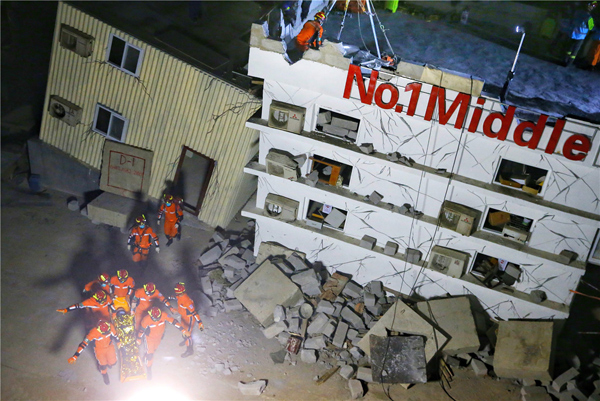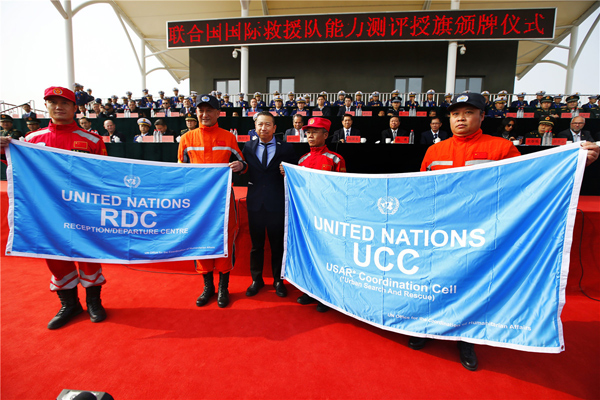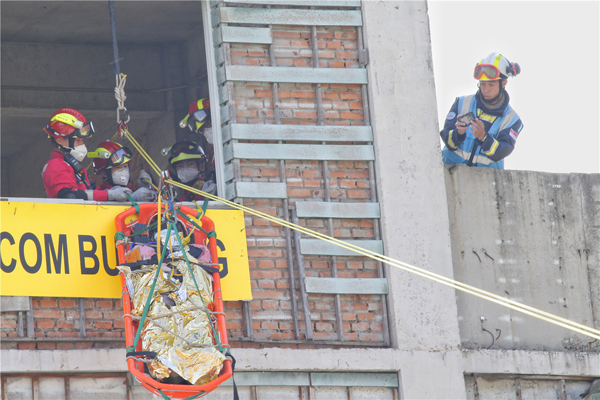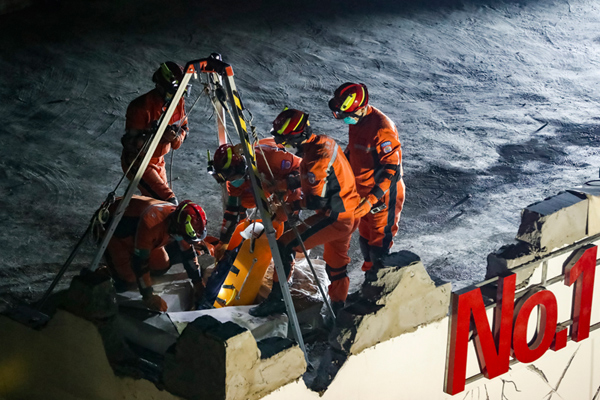
China has become the first Asian country to boast two heavy urban search and rescue teams, earning the United Nations' highest external classification for rescue forces.
The China International Search and Rescue Team passed its three-day peer review on Oct 22, while the China Search and Rescue Team passed the UN assessment for the first time.
"They've done exceptionally well," said Ramesh Rajasingham, director of the coordination division of the UN Office for the Coordination of Humanitarian Affairs. "We are all super impressed with their discipline, motivation, determination and the organization."
"They will be fantastic assets to the international system of search and rescue in disasters and we look forward to more cooperation with them internationally," he added.

The China International Search and Rescue Team first received the classification in 2009, becoming the second heavy team in Asia following Singapore. All teams must be re-evaluated every five years to maintain the title, according to UN rules.
According to their operational capabilities, urban search and rescue teams deployed internationally are classified as "medium teams" or "heavy teams" through the International Search and Rescue Advisory Group External Classification. This ensures that qualified and appropriate resources are deployed.

Shang Yong, vice-minister of emergency management, said the UN certification proved the capability of the two teams to carry out international humanitarian relief work. He said China will beef up its efforts in promoting emergency management capabilities by learning from advanced international experiences.
He said China will also further enhance international cooperation on emergency management and disaster relief by establishing a cooperation mechanism with countries involved in the Belt and Road Initiative.
"China will offer more necessary support to these countries, making full use of its advantages in remote sensing technology and its capabilities in disaster forecast and monitoring and international rescue," he said.
